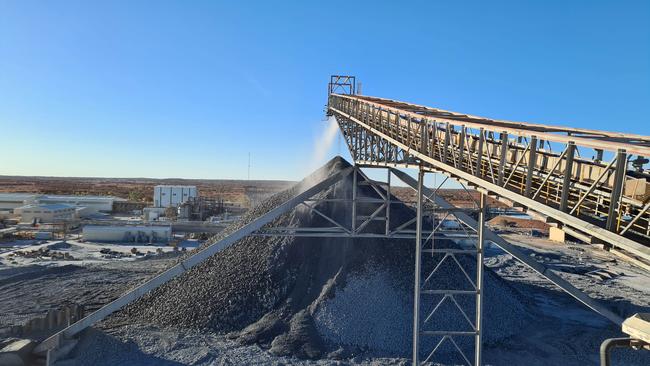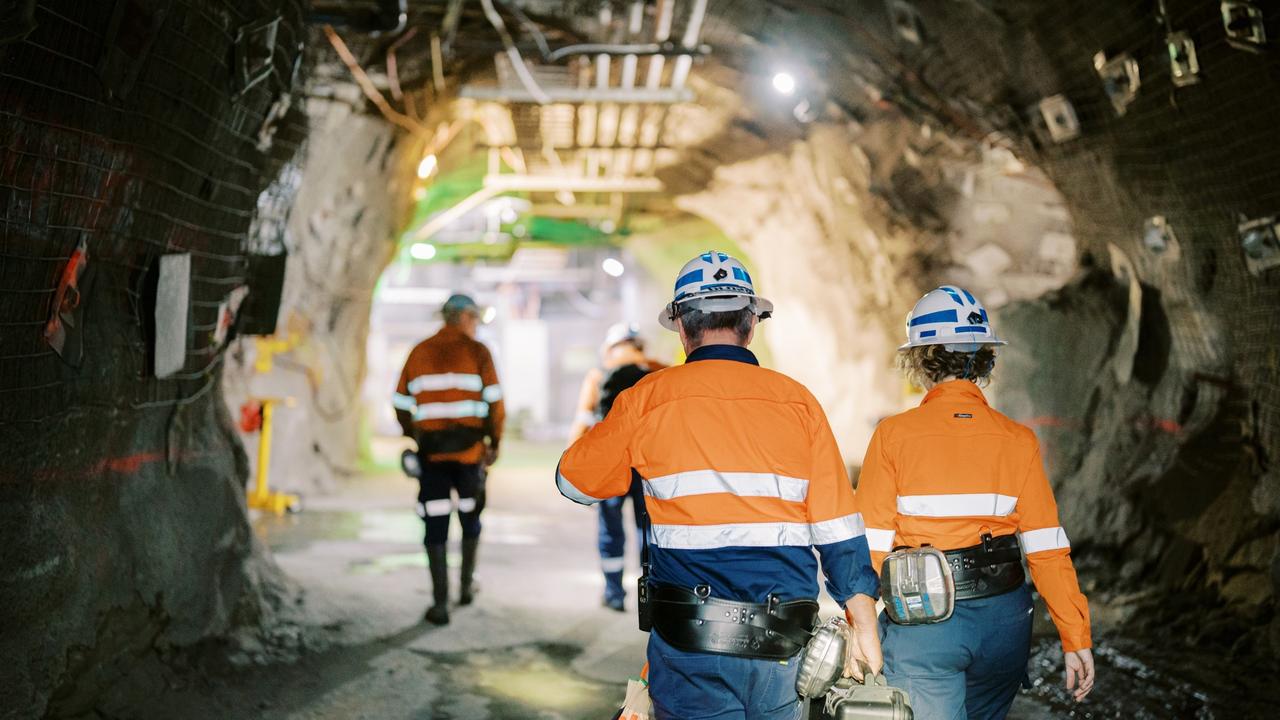WA premier Roger Cook defends handling of BHP Nickel West failure
Western Australia premier Roger Cook has defended Labor’s efforts in the lead-up to BHP’s decision to suspend its nickel operations in WA.

Business
Don't miss out on the headlines from Business. Followed categories will be added to My News.
Western Australia Premier Roger Cook has defended Labor’s efforts in the lead-up to BHP’s decision to suspend its nickel operations in WA, arguing that there was little governments could do in the face of global market conditions.
The mining giant on Thursday confirmed that it would suspend its operations across its nickel mines and refineries, putting the 3000 jobs in the division under a cloud. They are the latest nickel assets to be shuttered in the face of depressed nickel prices, which have sagged amid a surge of low-cost production out of largely Chinese-funded nickel operations in Indonesia.
BHP had warned in February that it may be forced to take the action if conditions didn’t improve, sparking calls for greater efforts from state and federal governments to provide support to the industry.
The Cook government announced a temporary, repayable 50 per cent rebate on nickel royalties, while the Albanese government formally added nickel to its list of commodities eligible to access lower-cost loans under its $4bn Critical Minerals Facility. Treasurer Jim Chalmers in May also announced a production tax credit for the critical minerals sector, although that funding is only open to new processing facilities and does not come into effect until 2027.
BHP did not access any of that state or federal support, with the opposition criticising the governments for their failure to do more to avoid the shutdown.
But Mr Cook on Friday said there was only so much governments could do in the face of weak macro conditions.
“This is not a simple case of destroying our finances to maintain or to shout into the wind of global prices for nickel. This is an important opportunity for Nickel West to make sure that they are in a position to take advantage of the nickel price once it comes back to acceptable levels,” he said.
“At no time have BHP indicated that it is down to the policies of the governments that’s led to this decision.”
BHP has said the operations will be put into care and maintenance, rather than permanently closed, with the company planning to spend $450m a year to keep the assets ready for a restart later this decade when market conditions improve.

Mr Cook said the nickel and lithium industries were experiencing significant volatility at the moment as their markets adjusted to the rapid growth in both supply and demand from electric vehicles and battery storage.
“BHP had said that they expect the global price to settle at a much more realistic level in around ’27-28. Other people independent of BHP have also signalled about that time that you will see a significant increase in demand for nickel and other battery elements,” Mr Cook said.
“So I take them at their word, and we’re very much looking forward to seeing that becoming a reality.”
Federal Resources Minister Madeleine King echoed Mr Cook’s sentiment, noting that the nickel industry had tipped into oversupply as a result of Indonesia’s nickel output going from “zero to all guns blazing” in just a few years.
“The challenges to that [Nickel West] operation were so large that government intervention became impossible,” she said.
“That was put in train five or six years ago for factors way beyond the control of BHP or the Australian federal government.”
Opposition resources spokeswoman Susan McDonald accused Labor of failing to take the threats to the nickel industry seriously.
“Under the Albanese government labour costs and energy costs have spiralled. That, combined with the flooding of the global market with nickel, has put untold pressure on Australia’s industry,” she said.
“Labor failed to act and failed the industry and the thousands of associated Australian jobs.”
WA Liberal leader Libby Mettam said the death of the nickel sector would effectively end any possibility of establishing a lithium-ion battery manufacturing industry in the state.
“WA needs to ensure it has a viable mineral processing sector if we are to be more
than a dig and ship economy,” she said.
“But the reality is Western Australia’s abundant critical mineral resources, and our
global competitiveness is being undermined by Labor policies at both state
and federal levels.”
Nickel West’s Kwinana refinery happens to sit in the electorates of both Mr Cook and Ms King.
Those electorates have already been hit this year by the news that US giant Alcoa would suspend operations at its Kwinana alumina refinery, with the loss of around 1000 jobs.
BHP has said that the workers affected by the Nickel West suspension will be offered redeployment to other parts of the business.
Originally published as WA premier Roger Cook defends handling of BHP Nickel West failure




